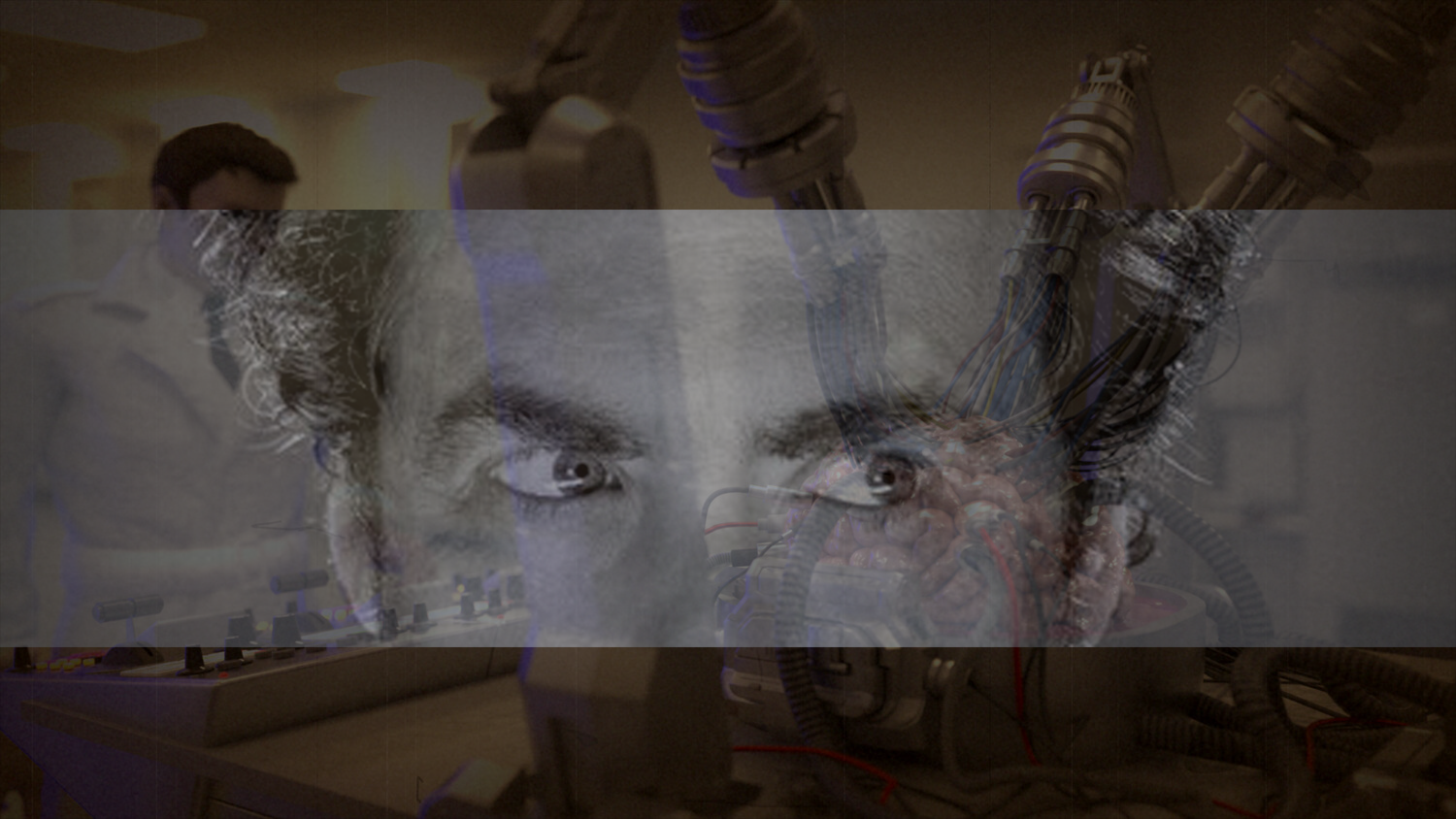
Rodney Ascher is a filmmaker whose work in both documentary and narrative storytelling often intersects with the synchronicities that occur between history and culture. While both significantly related yet casual in connection, Rodney emphasizes these symbiotic relationships between events and subject matter through the remix of visual language and media artifacts, thereby providing a new perspective.
Watch the Film: CMU Libraries | Hulu | Amazon
When tackling the subject of simulation theory for his latest film “A Glitch in the Matrix,” the filmmaker took inspiration from Philip K. Dick’s lecture “If You Find This World Bad, You Should See Some of the Others” before looking at other material in the acclaimed writer’s catalog, particularly the 1974 entry VALIS, in which Dick said, “The symbols of the divine initially show up at the trash stratum.” Rodney interpreted this to mean the flotsam and jetsam of our cultural residue, the disposable images and forgotten media that continues to accumulate in our society over time. By manipulating the images found in the analog generation of film,video, and television commercials, the filmmaker juxtaposes these ephemeral icons with the digital renderings of today, creating a hybrid reality. While this approach is relevant to all of his films, “A Glitch in the Matrix” asks us to question the very basis of this reality, which lets the director explore this ocular landscape and create a visual language all his own.
Learn more about the cultural influences that helped shape "A Glitch in the Matrix" in the library media list below. Each item has been curated by the director and includes a brief statement of its importance to both the film and Rodney’s work.
Carnegie Mellon University Libraries is honored to welcome “A Glitch in the Matrix” filmmaker Rodney Ascher in conversation with CMU faculty members Emma Slayton, Ralph Vituccio, and Kristen Kurland for an interdisciplinary discussion on the film. Thursday, November 18, 5:00 p.m. ET.
Weird Studies: The Trash Stratum
Ford, Phil; Martel, J.F. (2018)
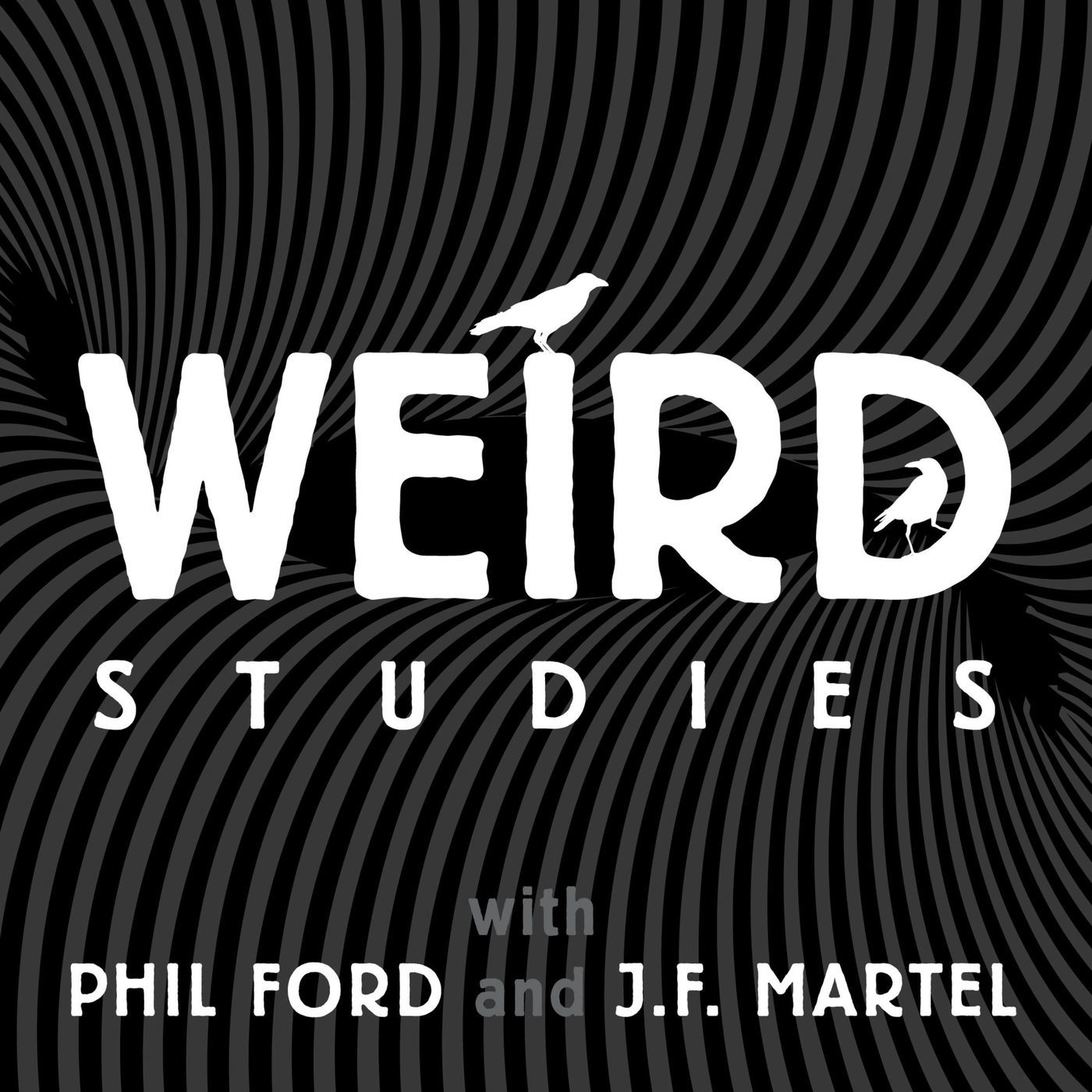 This podcast is a favorite of mine, and this episode is both a fantastic appreciation of PKD’s work, and really nails what I love about finding beauty and meaning in the most humble places - from forgotten time travel movies of the 50s to the letters’ pages in underground comic books. At a certain point, the trash stratum became the most desirable place to find archival imagery for "Glitch" as well. - RA
This podcast is a favorite of mine, and this episode is both a fantastic appreciation of PKD’s work, and really nails what I love about finding beauty and meaning in the most humble places - from forgotten time travel movies of the 50s to the letters’ pages in underground comic books. At a certain point, the trash stratum became the most desirable place to find archival imagery for "Glitch" as well. - RA
Listen to Episode 20 Listen to Episode 21
The Shifting Realities of Philip K. Dick: Selected Literary and Philosophical Writings
Dick, Philip K.; Sutin, Lawrence (1996)
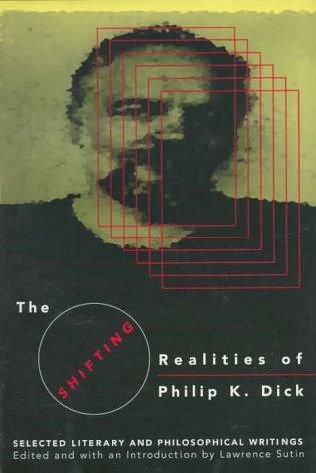 This book of essays includes a version of the speech PKD gave at the science fiction convention in Metz, France that we show clips from in the film. Interestingly the section in which he says “I believe we’re living in a computer controlled reality…” was an ad-lib. Fascinating insight into the questions that haunted PKD and how they bled into (or out of) his fiction. - RA
This book of essays includes a version of the speech PKD gave at the science fiction convention in Metz, France that we show clips from in the film. Interestingly the section in which he says “I believe we’re living in a computer controlled reality…” was an ad-lib. Fascinating insight into the questions that haunted PKD and how they bled into (or out of) his fiction. - RA
Request this Title
The Religious Experience of Philip K. Dick
Crumb, R. (1986)
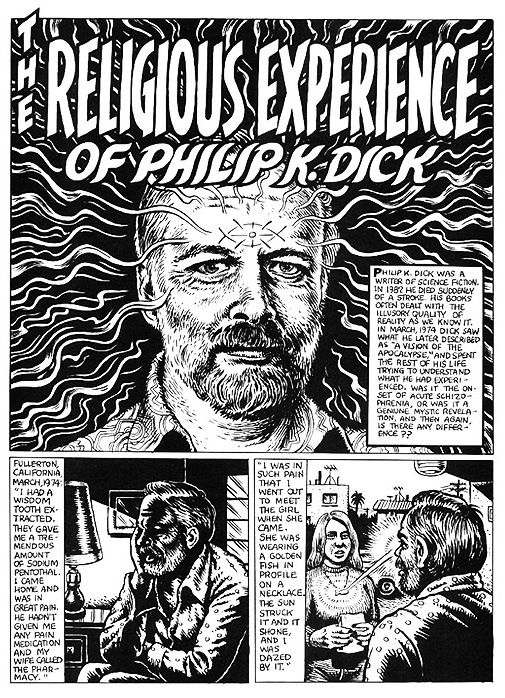 One of the most concise summaries you’ll come across of the "Valis" experience of 1976, originally featured in R. Crumb’s legendary underground comic. The fact that this event has not yet been the basis of a major motion picture is a pretty powerful indictment of Hollywood’s business as usual. - RA
One of the most concise summaries you’ll come across of the "Valis" experience of 1976, originally featured in R. Crumb’s legendary underground comic. The fact that this event has not yet been the basis of a major motion picture is a pretty powerful indictment of Hollywood’s business as usual. - RA
Read More
The Simulation Argument
Bostrom, Nick (2003)
 Well before he even saw the film, a friend scolded me for summarizing Bostrom’s essay for him at the beach a while back (an incident I’d long since forgotten) and planting a brain-worm he still hadn’t recovered from. A true milestone in the mainstreaming of simulation theory. - RA
Well before he even saw the film, a friend scolded me for summarizing Bostrom’s essay for him at the beach a while back (an incident I’d long since forgotten) and planting a brain-worm he still hadn’t recovered from. A true milestone in the mainstreaming of simulation theory. - RA
Published in Philosophical Quarterly (Vol. 53, No. 211, pp. 243‐255)
Read More
TechGnosis: Myth, Magic and Mysticism in the Age of Information
Davis, Erik (2003)
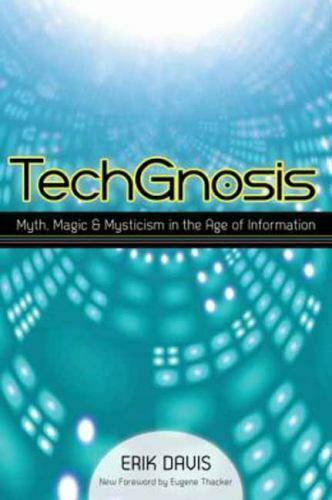 Erik is a leading scholar of the strange convergence of technology and the metaphysical, and here he gives one of the most definitive overviews of the subject. Even more pertinent to the film, he was part of the team that edited PKDs 8,000 page exegesis into a single (arguably readable) volume. - RA
Erik is a leading scholar of the strange convergence of technology and the metaphysical, and here he gives one of the most definitive overviews of the subject. Even more pertinent to the film, he was part of the team that edited PKDs 8,000 page exegesis into a single (arguably readable) volume. - RA
Request this Title
The Simulation Hypothesis: An MIT Computer Scientist Shows Why AI, Quantum Physics and Eastern Mystics All Agree We Are In a Video Game
Virk, Riz (2003)
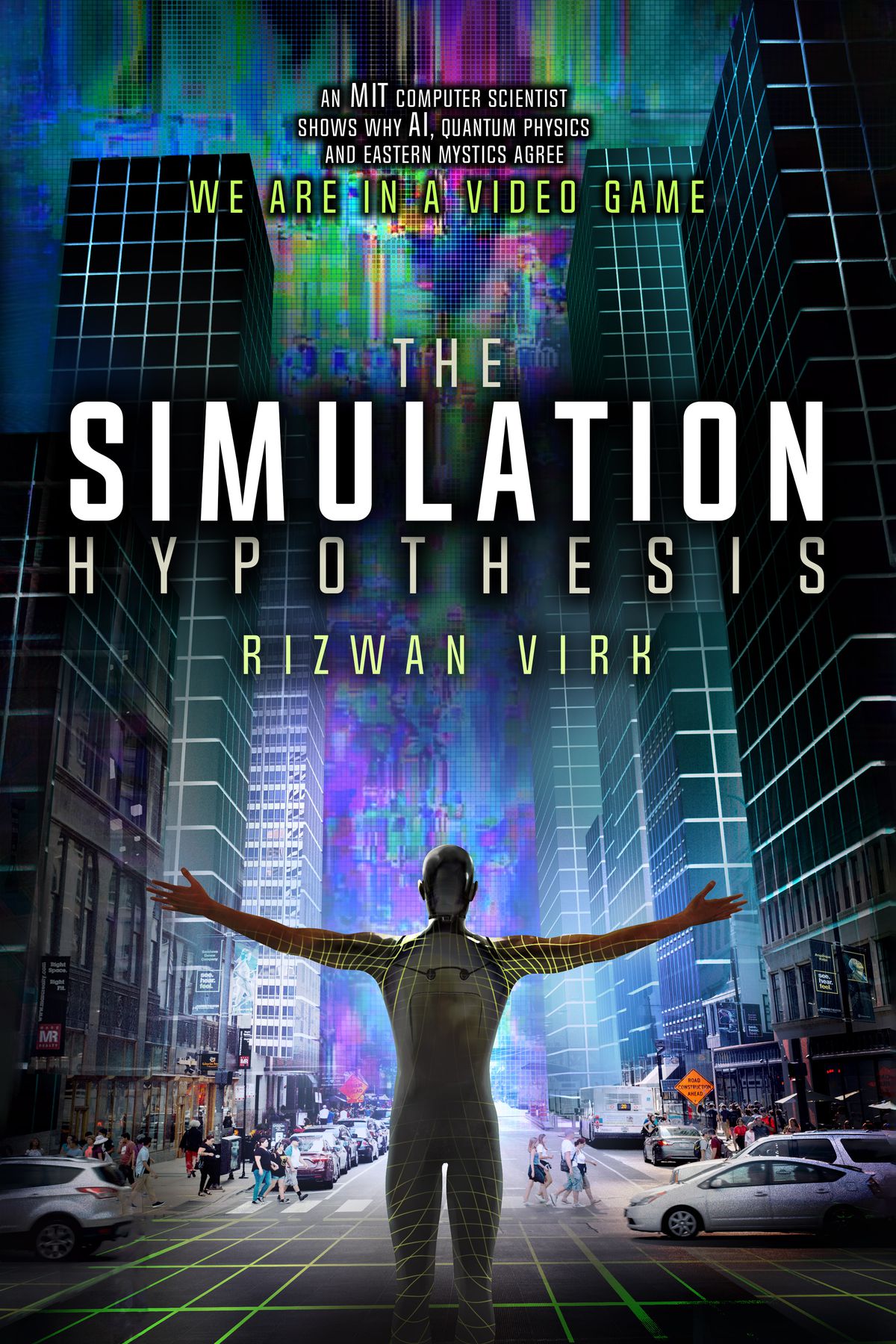 A flip-side to "Techgnosis" in its way, coming at simulation theory via experts in multiple disciplines. - RA
A flip-side to "Techgnosis" in its way, coming at simulation theory via experts in multiple disciplines. - RA
Request this Title
Superman Annual #11: “For the Man Who Has Everything”
Moore, Alan; Gibbons, Dave (2003)
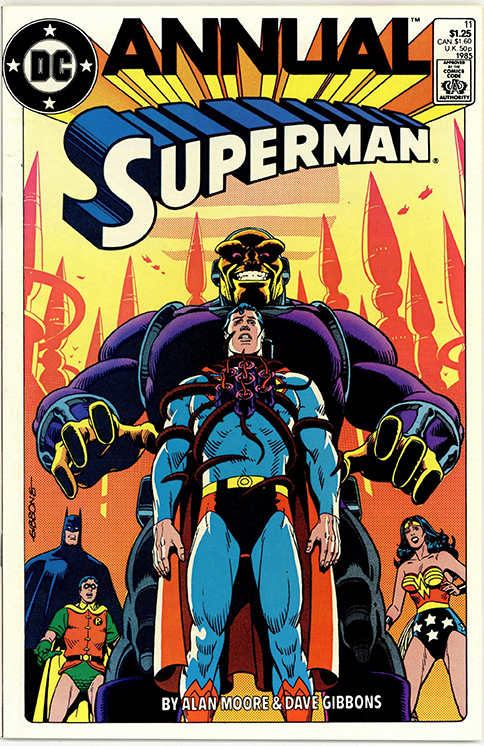 One of the greatest stories of the terrifying allure of artificial worlds, and one of the greatest Superman tales of all time. He doesn’t fly faster or punch harder than a normal human in this one, he just makes a more difficult, more painful decision than most of us are capable of. - RA
One of the greatest stories of the terrifying allure of artificial worlds, and one of the greatest Superman tales of all time. He doesn’t fly faster or punch harder than a normal human in this one, he just makes a more difficult, more painful decision than most of us are capable of. - RA
Request this Title
The (Deep) Dream of Motivated Reasoning Produces Monsters
Pothast, Emily (2003)
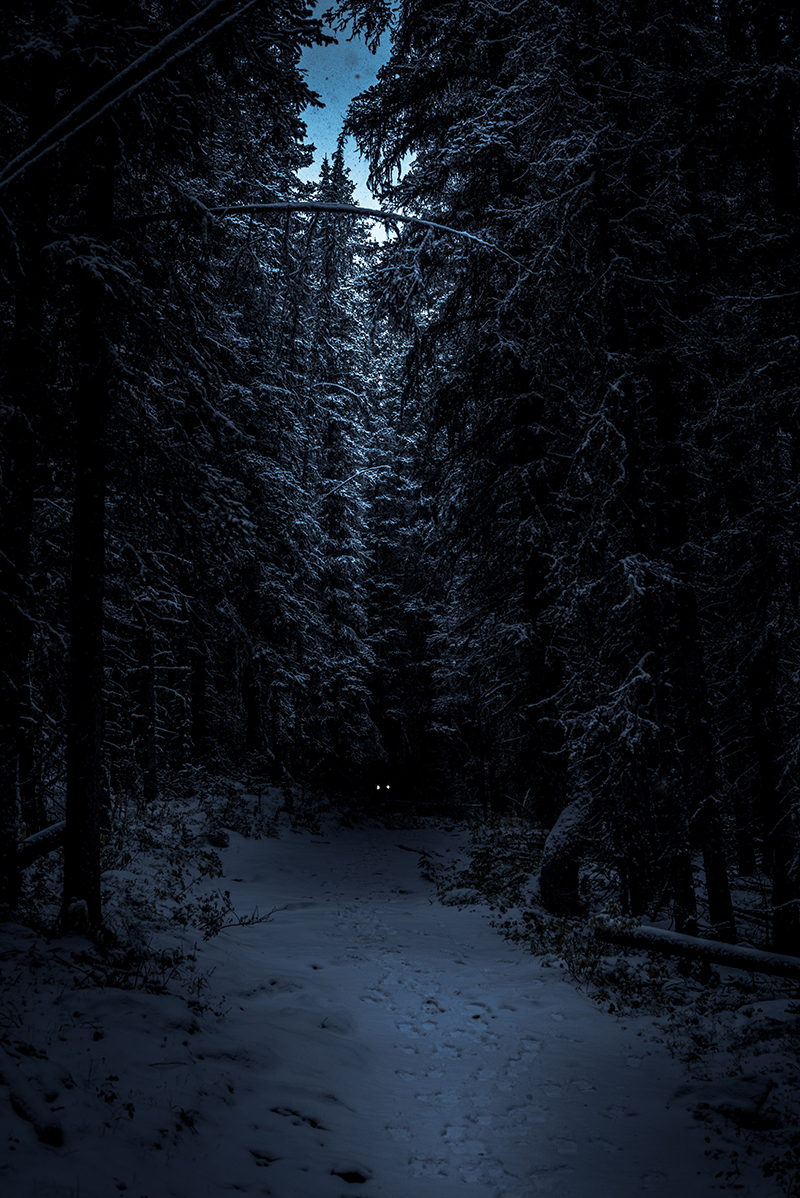 When a friend flagged this article for me on Twitter, I knew I needed to talk to Emily. Her deconstruction of Plato’s Cave, which frequently comes up in discussions of simulation theory, not only connected those dots, but 1,000 others, most powerfully, the dangers of not just incomplete ‘shadows of reality’ but maliciously designed ones. - RA
When a friend flagged this article for me on Twitter, I knew I needed to talk to Emily. Her deconstruction of Plato’s Cave, which frequently comes up in discussions of simulation theory, not only connected those dots, but 1,000 others, most powerfully, the dangers of not just incomplete ‘shadows of reality’ but maliciously designed ones. - RA
Read More
World on a Wire
Löwitsch, Klaus; Kubrick, Stanley; Vonnegut, Kurt; Dick, Philip K.; Fassbinder, Rainer Werner (2014)
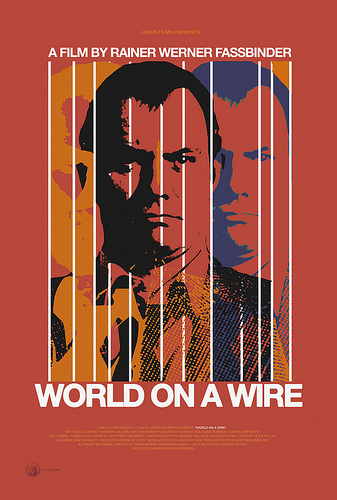 These are probably my favorite two simulation theory films, though the fact “World on a Wire” was made in 1973 is frankly jaw dropping (for what it's worth, “The 13th Floor” was based on the same book.) - RA
These are probably my favorite two simulation theory films, though the fact “World on a Wire” was made in 1973 is frankly jaw dropping (for what it's worth, “The 13th Floor” was based on the same book.) - RA
Request this Title
eXistenZ
Cronenberg, David (2014)
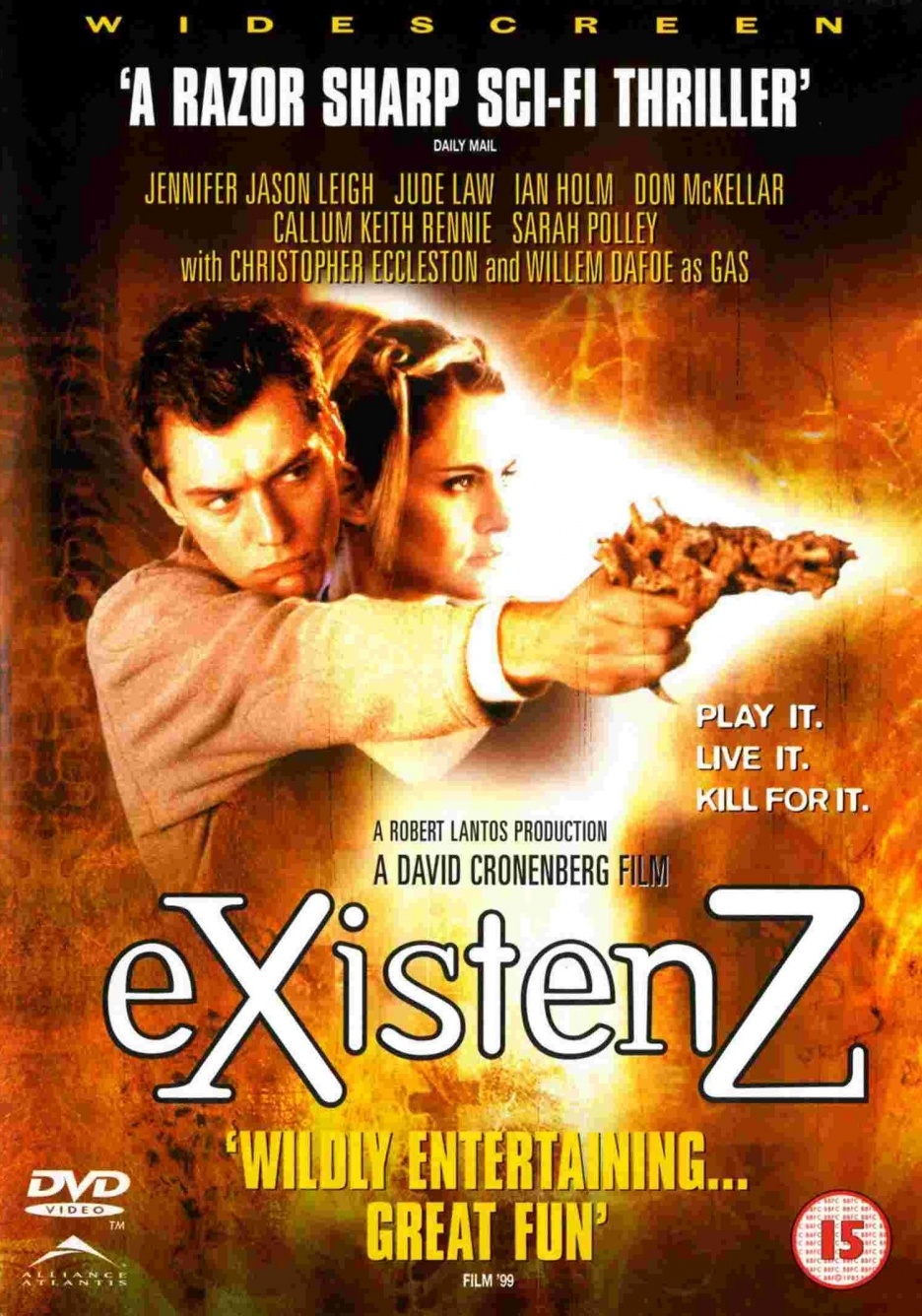 Cronenberg’s “eXistenZ” had the foresight to make all the technology organic which is one reason it’s just about the only timeless film of its genre. It’s also notable for its frankly hilarious portrayals of NPCs 20 years before “Free Guy.” - RA
Cronenberg’s “eXistenZ” had the foresight to make all the technology organic which is one reason it’s just about the only timeless film of its genre. It’s also notable for its frankly hilarious portrayals of NPCs 20 years before “Free Guy.” - RA
Request this Title
Sonic Outlaws
Baldwin, Craig (2005)
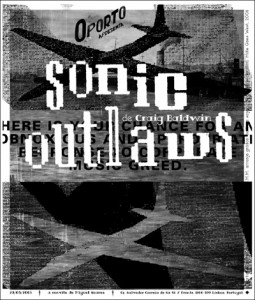 Not just a documentary about remix culture, it’s also an example of the form by one of its most important masters. Without fair use heroes like Negativland or Baldwin, there’d be no “Room 237” and/or “A Glitch in the Matrix."
Not just a documentary about remix culture, it’s also an example of the form by one of its most important masters. Without fair use heroes like Negativland or Baldwin, there’d be no “Room 237” and/or “A Glitch in the Matrix."
Request this Title
The Animatrix
The Wachowskis; Morimoto, Kōji; Watanabe, Shinichiro; Maeda, Mahiro; Chung, Peter; Jones, Andy; Kawajiri, Yoshiaki; Koike, Takeshi (2003)
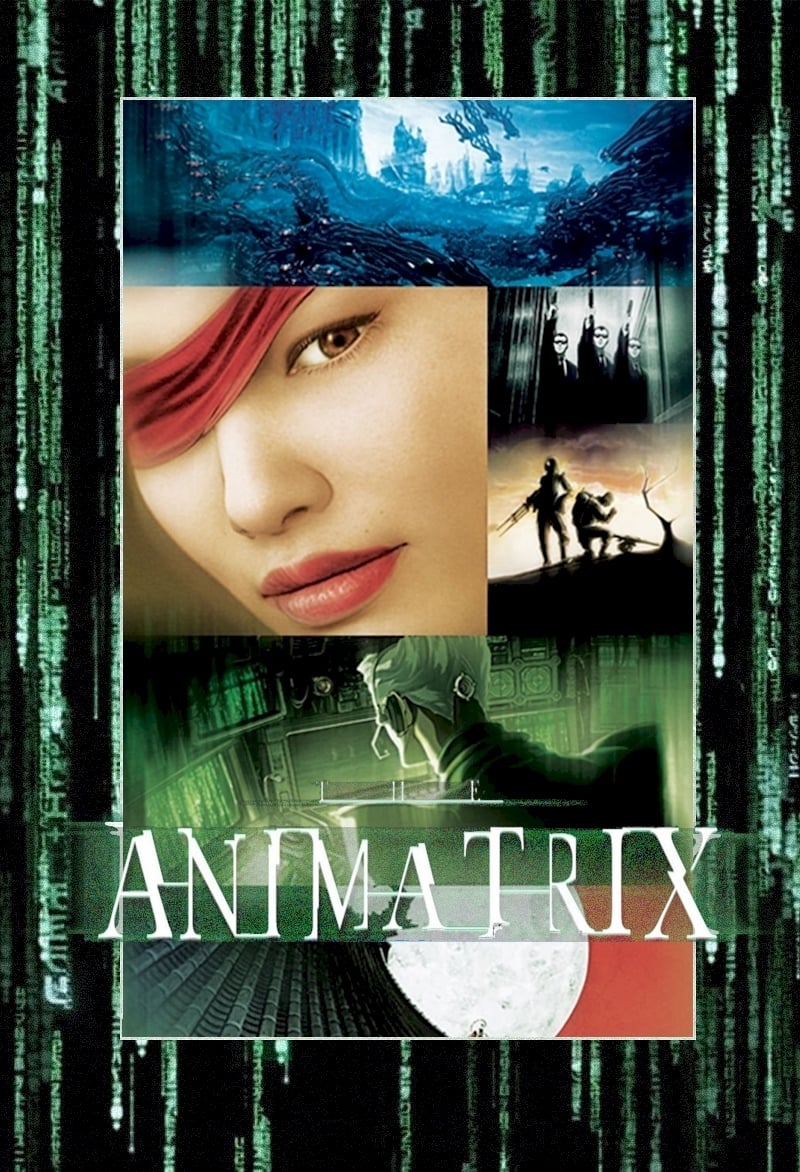 Interviewee Jesse Orion described this compilation as ever more central to his understanding of simulation theory than the original “Matrix” itself. Its step-by-step origin story of that film franchise’s world is cyberpunk anime “Tales from the Crypt” anthology unlike any other.
Interviewee Jesse Orion described this compilation as ever more central to his understanding of simulation theory than the original “Matrix” itself. Its step-by-step origin story of that film franchise’s world is cyberpunk anime “Tales from the Crypt” anthology unlike any other.
Request this Title
The Twilight Zone, Season 1: “And When the Sky Was Opened”
Sterling, Rod; Matheson, Richard (1959)
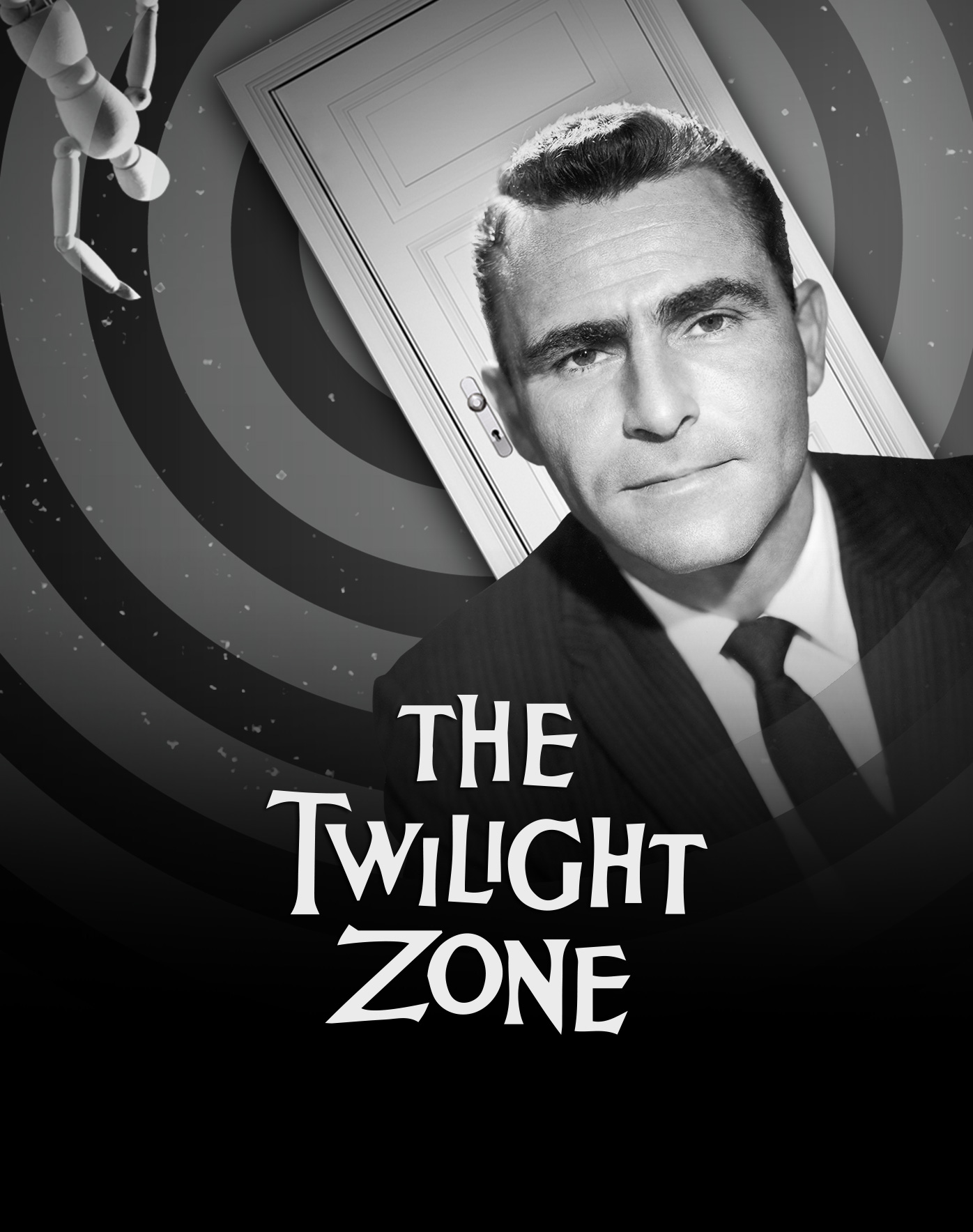 Prefiguring "The Man in the High Castle" or the popularity of Mandela effects, this enigmatic episode features a world in which an unstable past keeps rippling into the future. - RA
Prefiguring "The Man in the High Castle" or the popularity of Mandela effects, this enigmatic episode features a world in which an unstable past keeps rippling into the future. - RA
Request this Title
Abductees
Vester, Paul (1995)
Don’t tell anyone, but this short documentary is one of the biggest reasons I work in the style that I do. It’s non-judgemental immersion into the imagery and emotional aspects of abductees’ experiences is a lodestone I’ve been following since it knocked me on my ass some 20 years ago. - RA
Final Deployment 4: "Queen Battle Walkthrough"
Kelly, Casper; Gibbons, Nick (2018)
A jaw-droppingly great satire of the video game walkthrough YouTube video, it manages the trick of being both coldly vicious and warmly human. It also asks some of the bigger questions about what it might mean to be on both sides of the PS4 controller at once. - RA
Everything
O’Reilly, David (2017)
A transcendent and funny trailer for a video game which asks big questions about what it means to play... or be played. - RA
"The Cave," a Parable Narrated by Orson Welles
Weiss, Sam (2019)
A beautifully illustrated version of the allegory narrated by one of the greatest directors, actors, and media pranksters of the 20th Century. - RA
Racket Fury: Table Tennis VR
Pixel Edge
These two apps for the Oculus feel like big steps on the way towards checking into the Matrix full time. Both of them allow for interacting with other people (across the country, perhaps the world) in realistic three dimensional spaces complete with 3D, directional sound. I’ve had more genuine and human interactions “in there” than plenty of real-world experiences “out here”. Plenty of reasons to be wary about spending too much time there, but at least in small doses, I’m a fan. - RA
Oculus Spatial
Suicide
Thau, Marty - Producer (1977)
 An early landmark in electronic music that, thousands of listens later, still helped get me in the proper mood to work on the film. - RA
An early landmark in electronic music that, thousands of listens later, still helped get me in the proper mood to work on the film. - RA
Request this Title
Big Science
Anderson, Laurie (2007)
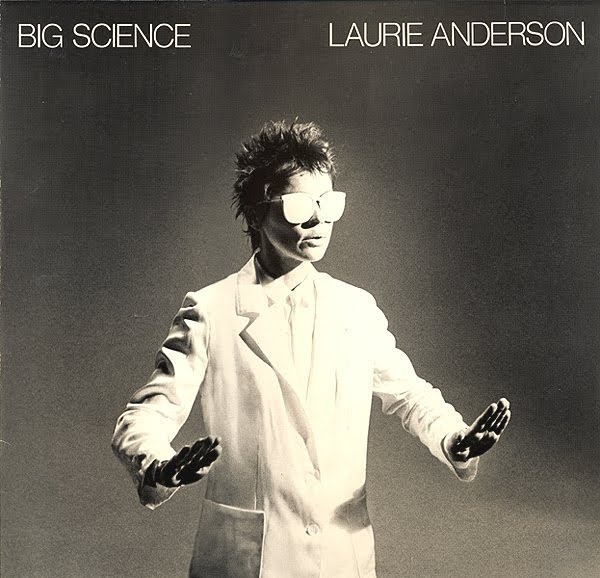 I love Kraftwerk and Daft Punk too, but Suicide and Laurie Anderson are the most evocative collisions of the human voice and electronic soundscapes ever recorded. - RA
I love Kraftwerk and Daft Punk too, but Suicide and Laurie Anderson are the most evocative collisions of the human voice and electronic soundscapes ever recorded. - RA
Request this Title
by Andy Prisbylla, Coordinator, Student Engagement
Image for "The Simulation Argument" by Markus Spiske on Unsplash
Image for "The (Deep) Dream of Motivated Reasoning Produces Monsters" by Neil Rosenstech on Unsplash
